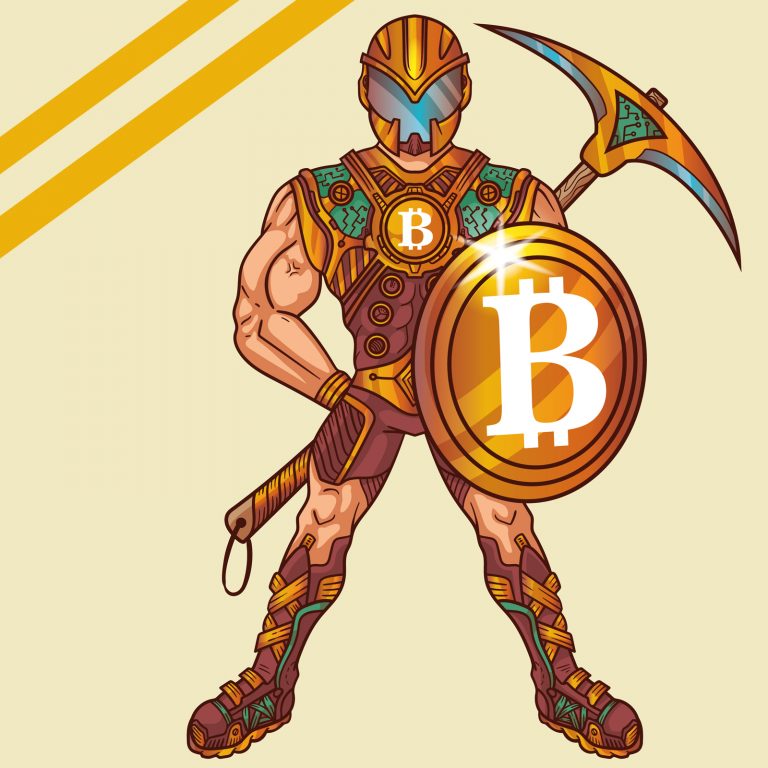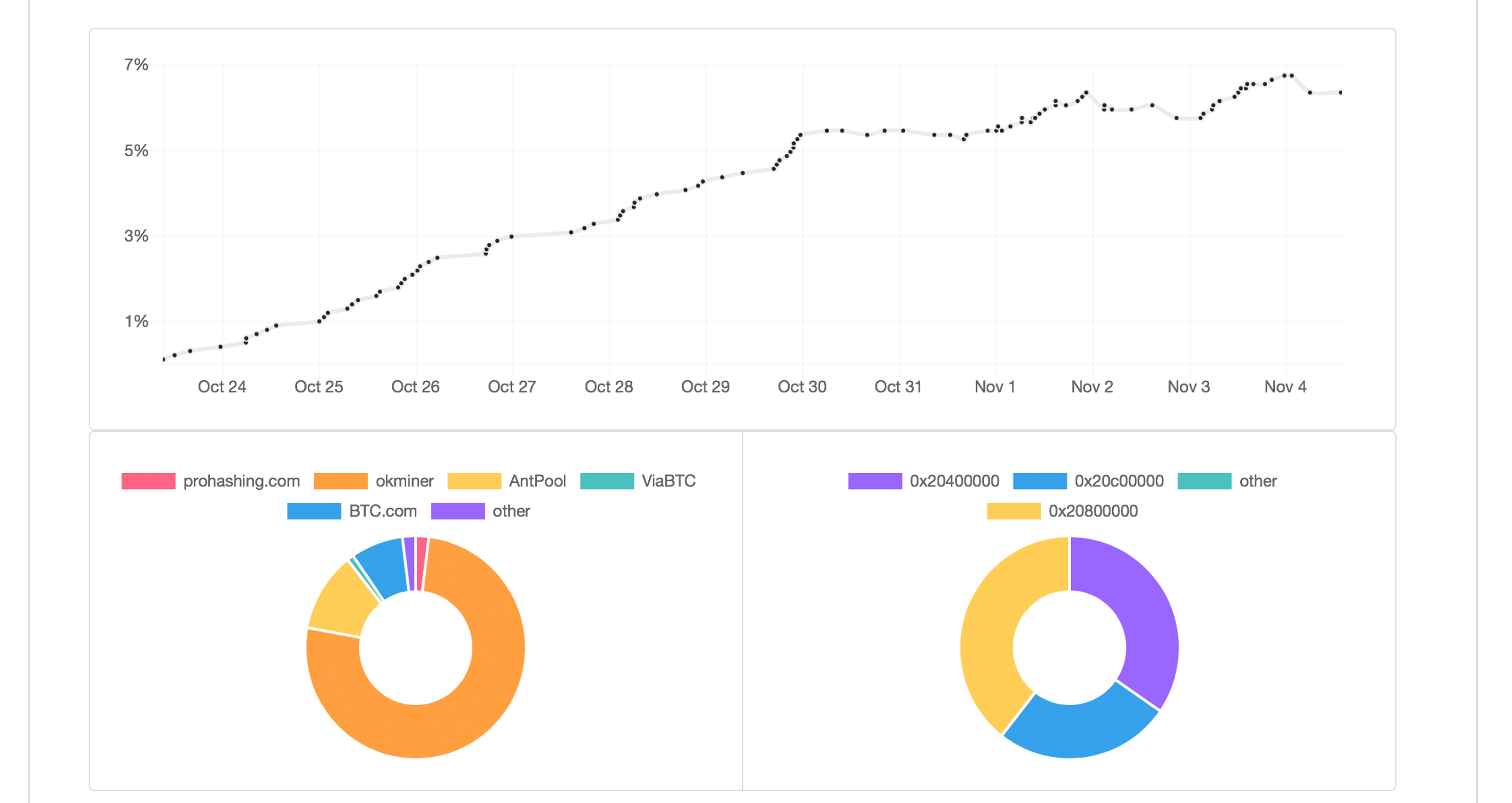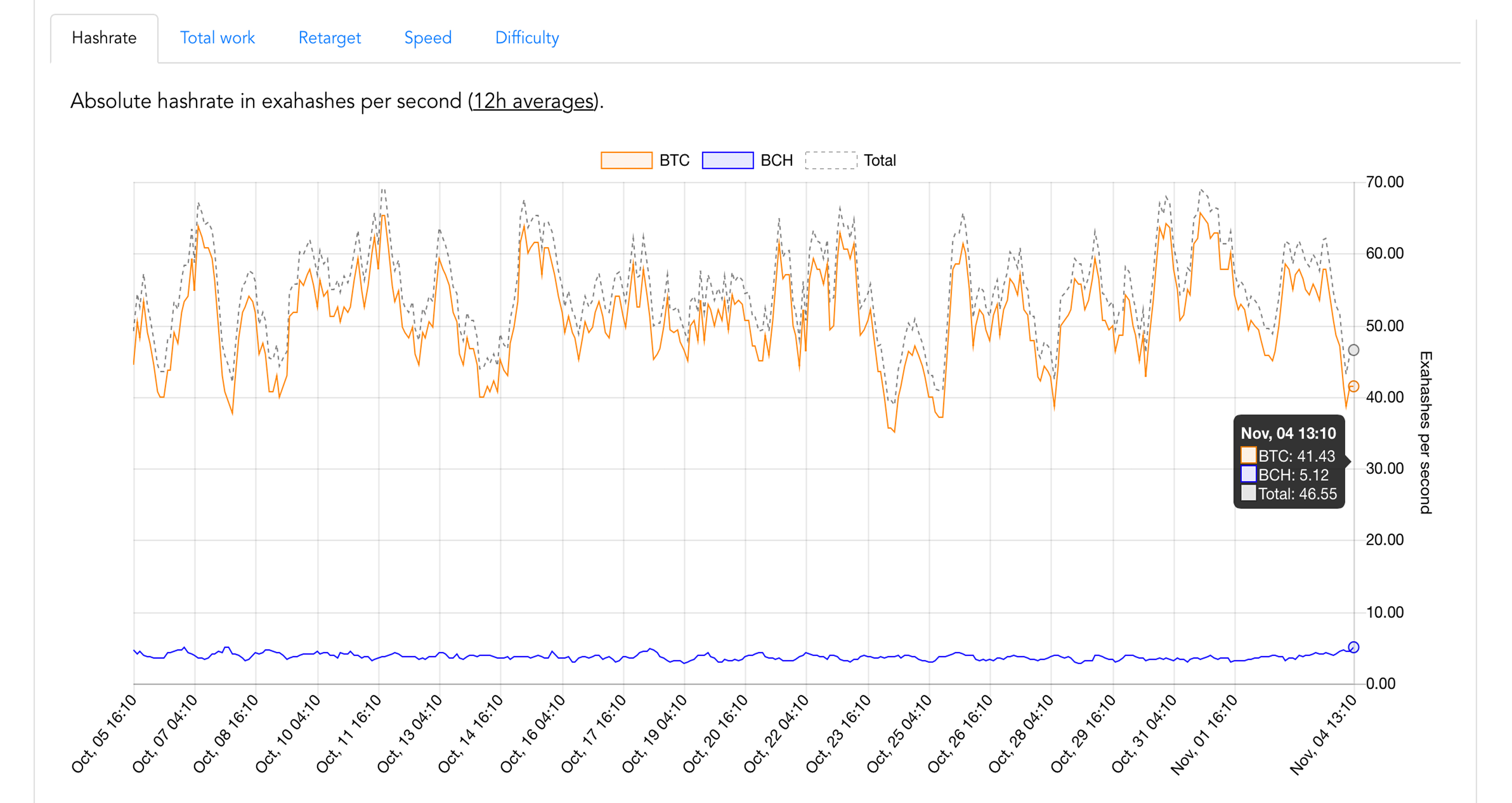Latest news about Bitcoin and all cryptocurrencies. Your daily crypto news habit.

On Oct. 22, Bitmain released new firmware for the company’s Antminer mining rigs that enables the use of an optimization known as (overt) version-rolling Asicboost. Since then, Bitcoin Cash mining pools have been using the protocol and 63 Asicboost blocks were mined last week on the network.
Also read: Developers Launch BDIP: A Bitcoin Cash Proposal Process for Decentralized Apps
Six BCH Pools Are Mining Bitcoin Cash With Overt Asicboost Technology
The Asicboost optimization has been steadily making its way into the mining industry and now the protocol is being used on the Bitcoin Cash (BCH) chain. So far six mining pools are using the version-rolling Asicboost technology to mine BCH blocks. The operations currently using Asicboost on the BCH chain comprise Antpool, BTC.com, Okminer, Prohashing, Viabtc, and an unknown pool. According to the data website Asicboost.dance, since the Oct. 22 firmware release, both BTC and BCH blocks have seen a significant spike in Asicboost usage. The creator of the data website has built another portal called Cash.asicboost.dance, which measures the metrics of Asicboost used on the BCH network.
 The use of Asicboost technology on the Bitcoin Cash network covers over 6% of the global hashrate.
The use of Asicboost technology on the Bitcoin Cash network covers over 6% of the global hashrate.
Asicboost was once controversial because some individuals assumed the technology was being used covertly. Now that mining operations are overtly using the technology, a slew of mining pools have adopted the protocol in order to improve efficiency. This is because Asicboost can speed up the mining process by a factor of approximately 20 percent by reducing the gate count on mining chips. Essentially, the protocol is also applicable to all types of ASIC chips according to the whitepaper written by Dr. Timo Hanke. Initially, the use of Asicboost had occurred solely on the BTC chain and last week there were 111 version-rolled blocked mined on the BTC network. This accounts for 11 percent of the BTC hashrate and 5.87 exahash per sec (EH/s).
 Bitcoin Cash (BCH) network hashrate (5.1 EH/s) and Bitcoin Core (BTC) network hashrate (41.4 EH/s) on Nov. 4, 2018.
Bitcoin Cash (BCH) network hashrate (5.1 EH/s) and Bitcoin Core (BTC) network hashrate (41.4 EH/s) on Nov. 4, 2018.
Asicboost Accounts for Over 6% of Total Hashrate
Bitcoin Cash miners are slowly starting to increase usage of the protocol and last week there were 63 version-rolled Asicboost blocks mined on the BCH chain according to the Cash.asicboost.dance website. This means that on the BCH network mining pools have processed 0.23 EH/s or 6.25 percent of the overall hashrate. The pool processing the largest share of Asicboost blocks on the Bitcoin Cash network is Okminer, a mining operation that currently commands roughly 10.3 percent of the global BCH hashrate. The lead held by Okminer is followed by Bitmain’s Antpool and then the mining operation BTC.com.
 Due to the increase in BCH values, it is more profitable to mine on the Bitcoin Cash chain this weekend.
Due to the increase in BCH values, it is more profitable to mine on the Bitcoin Cash chain this weekend.
Overall, the BCH hashrate has increased, but no significant hashrate spikes have been seen since Asicboost started being steadily used on the BCH chain. The hashrate increase is likely correlated with bitcoin cash markets jumping in value, making it more profitable to mine BCH over BTC. On Sunday Nov. 4., it is 4.6 percent more profitable to mine bitcoin cash than bitcoin core. This weekend, as the price of BCH increased, Asicboost came awfully close to touching 7 percent, reaching its all-time high since the mining protocol began being measured on the BCH network.
What do you think about Asicboost being used on the Bitcoin Cash network? Let us know what you think about this subject in the comments section below.
Images via Shutterstock, Cash.asicboost.dance, Fork.lol, and Coin Dance Cash.
Want to create your own secure cold storage paper wallet? Check our tools section.
Disclaimer
The views and opinions expressed in this article are solely those of the authors and do not reflect the views of Bitcoin Insider. Every investment and trading move involves risk - this is especially true for cryptocurrencies given their volatility. We strongly advise our readers to conduct their own research when making a decision.